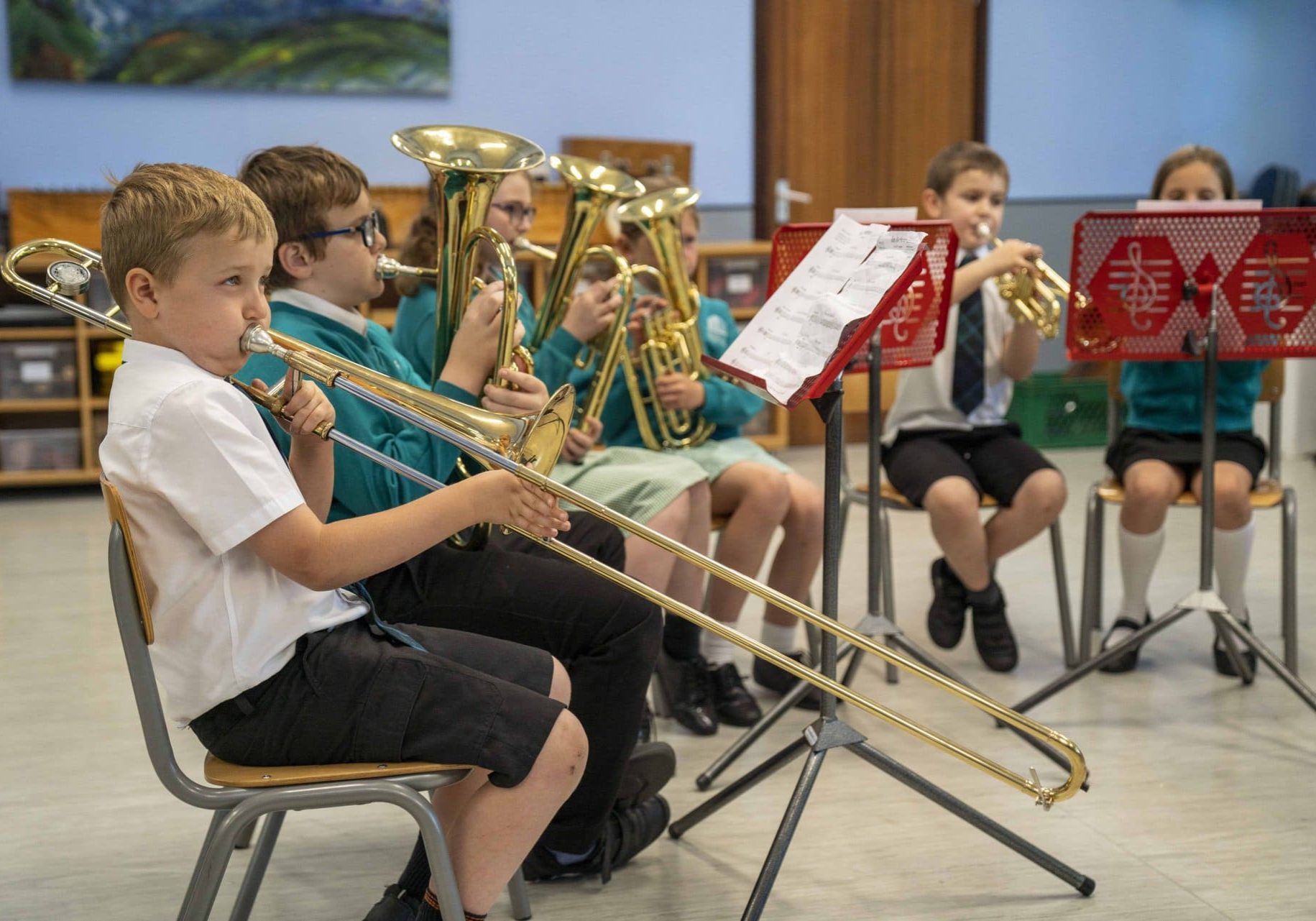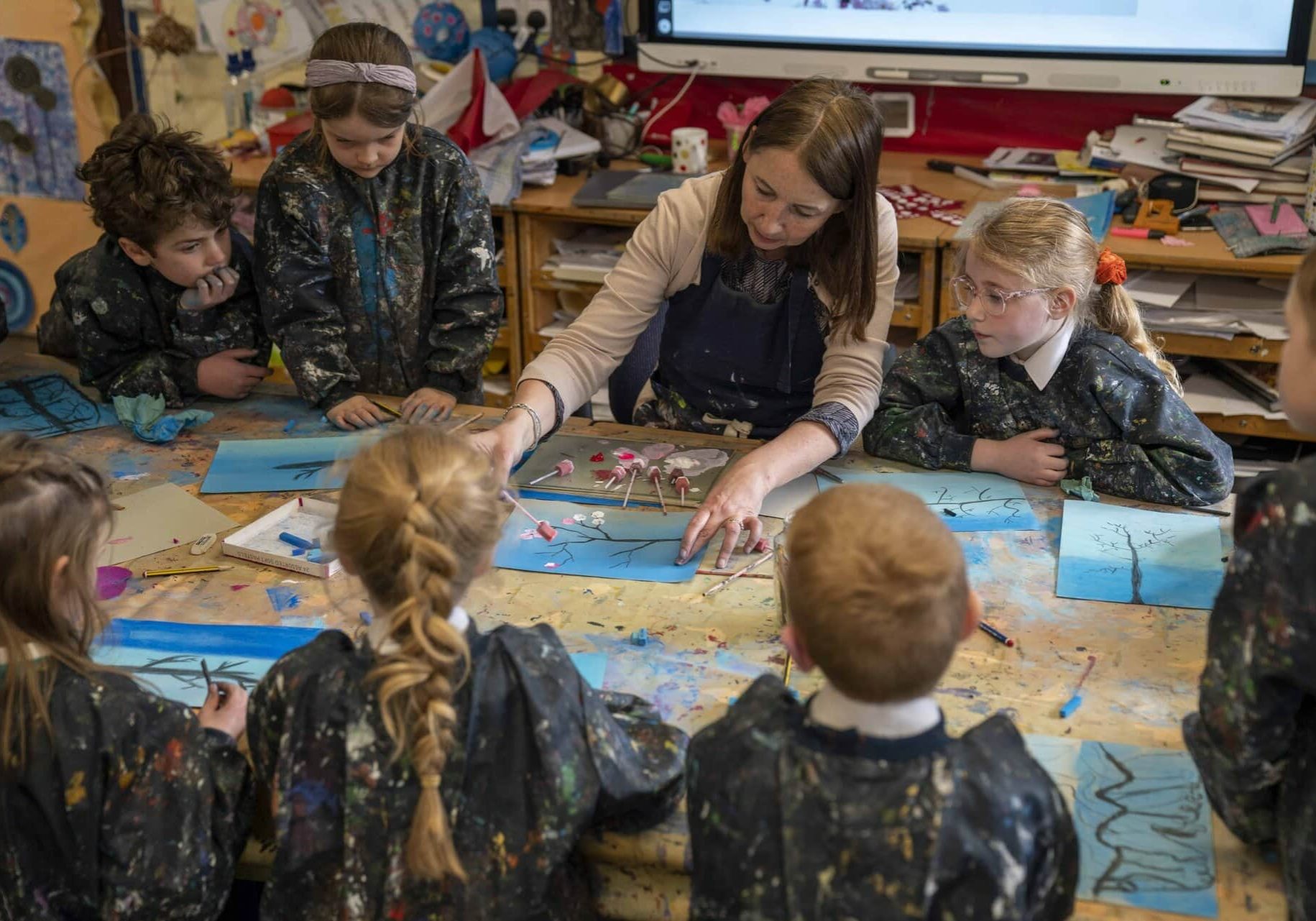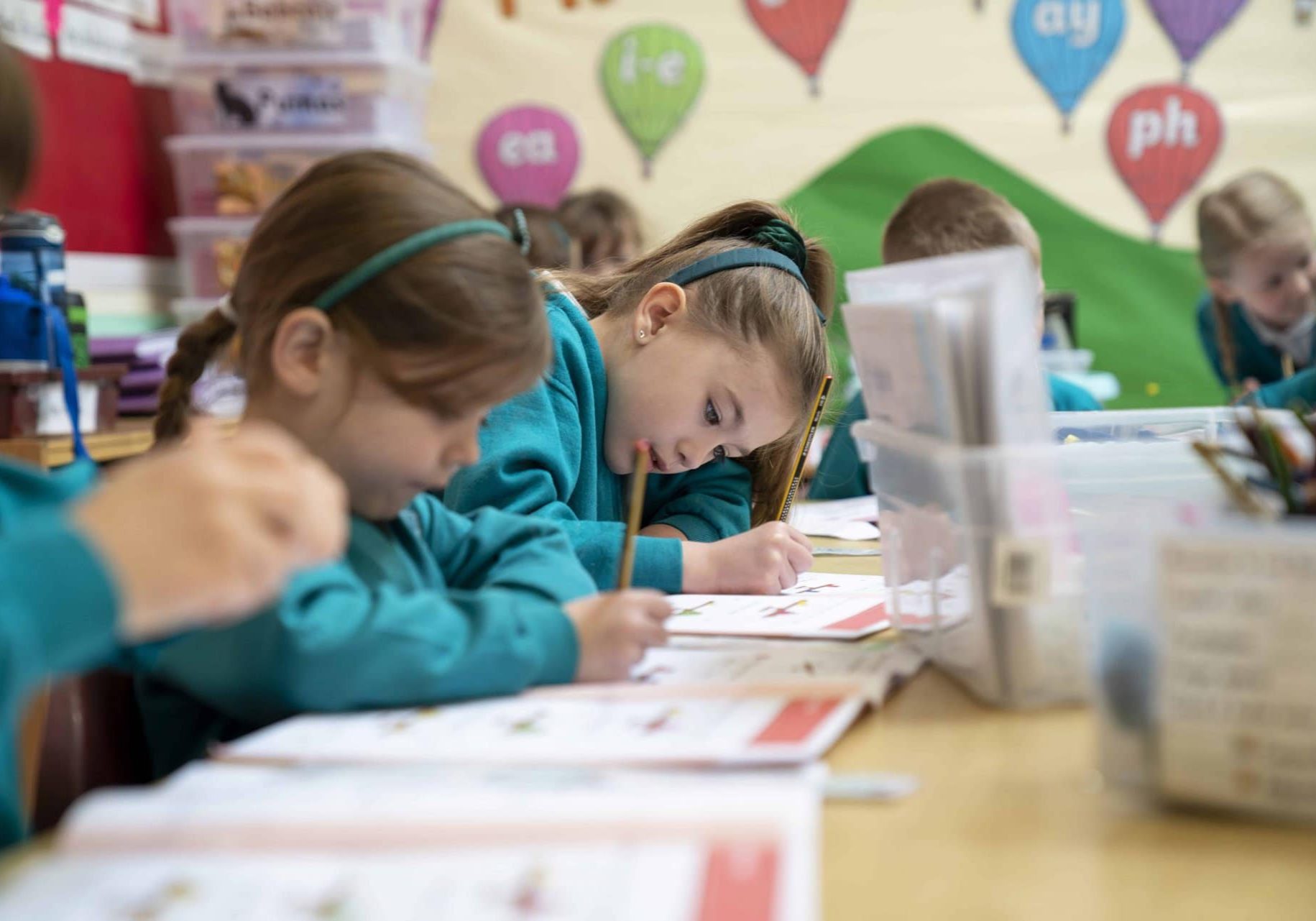In This Section
Writing
'If you want to change the world, pick up your pen and write.' – Martin Luther
Curriculum Intent
At Nicholas Hawksmoor, we aim to ensure that all children leave us with the ability to confidently write at length across a range of genres, with a solid understanding of the grammatical skills required, in order to be clear and coherent in what they want to say. Our writing curriculum is strategically structured through a coherent long term plan. This plan outlines curriculum objectives introduced, developed, and embedded each term, providing opportunities for students to revisit and build on prior learning in a clear, sequential manner. We emphasize the importance of high-quality literary texts each term, integrating explicit reading and writing skills into every lesson. Our goal is for all pupils to acquire the key skills and techniques needed to communicate effectively in writing, inspired by the works of accomplished writers.
Our ambitious writing curriculum is designed to ensure that pupils:
- Develop and express a deep understanding of the wider world.
- Engage with moral, ethical, and social questions.
- Establish connections between subjects to deepen and expand their understanding of other curriculum areas.
- Prepare for success at secondary level and beyond.
The curriculum is cohesive and well-sequenced, ensuring:
- Breadth and depth through cumulative units that revisit and reinforce learning.
- Pupils understand the purpose of writing and develop fluency in their concepts.
- The ability to produce high-standard writing across the curriculum.
- Explicit teaching of writing conventions and grammatical structures, building pupils' confidence to use these independently in extended pieces.
Our teaching approach is informed by current research in cognitive science and includes:
- Direct and explicit teaching of skills daily, through our Fantastic Fundamentals approach.
- Extended writing sequences to embed and practice skills.
- Regular revisiting of prior learning.
- Direct and explicit teaching of Tier 2 and Tier 3 vocabulary.
- Use of high-quality, ambitious texts to model and exemplify conventions and grammatical structures.
Key Resources
National Curriculum for English
Vocab, Grammar & Punctuation Appendix
NHPS Writing Curriculum Overview and Progression
NHPS Writing Planning Structure
Implementation
At Nicholas Hawksmoor, we use Fantastic Fundamentals daily - an approach developed in order to support children becoming fluent writers across the school. Based on a similar theory to Maths flashbacks, Fantastic Fundamentals provide children with a daily opportunity to recall, practise and apply previously taught writing skills; supporting the development of fluency in writing. The focus of these daily sessions is on spelling, handwriting, grammar, punctuation, vocabulary and proof-reading/editing.
Our writing lessons build units of work around high-quality texts that exemplify the genre or text type being studied. These texts, rich in vocabulary and language structures, inspire our teaching of reading, writing, and spoken language to meet National Curriculum requirements. We integrate vocabulary development, oracy work, and information gathering into our lessons, covering fiction, non-fiction, and poetry genres throughout the year.
We teach writing through 3-4 weeks units which are delivered through the following format:
- Immerse: We begin a writing unit by sharing a quality model text with the children. We draw attention to the text type, audience and purpose of the text and consider their importance.
- Analyse: We identify the key features of the model text in line with the end of unit expectations. This will outline the writing tool kit used to assess the children’s independent writing at the end of the unit. We then annotate the model text and add to working wall.
- Teach, Model, Practise and Apply: We take the time to learn about, practice and apply the writing features identified. The children will have plenty of opportunity to practise and apply these skills in order to succeed in their independent writing. These practice activities are relevant and related to the theme of the model text. Each skill in the toolkit is practised with the working wall annotated with key learning and examples.
- Plan: Children then plan their independent writing. All children will have the writing toolkit available to refer to and are encouraged to use the working wall for support.
- Write: Using the tool kit and teacher feedback for support, children will have the opportunity to edit and re-draft elements and sections of their writing. Children are encouraged to refer back to the working wall to self-assess against their toolkit when editing, improving and redrafting.
- Edit and Improve: Children then return to their work to make additions, improvements and corrections using GRASP – Grammar, Re-write, Add more, Spelling and Punctuation. Ensuring punctuation is focussed and it makes sense; developing more ambitious language choices (thesaurus use) and adapting sentence structure to engage the reader.
Handwriting
We follow the principles of the Kinetic Letters handwriting scheme throughout the school. Kinetic Letters adopts a multi-sensory approach to develop physical strength and pencil grip, enabling children to write comfortably and legibly. Handwriting, a physical activity involving movement and recognition skills, becomes an automatic cognitive skill through this program.
Key principles of the programme emphasize:
- The importance of physical strength in handwriting and concentration.
- Mastery of individual writing components before combining them.
- Learning letters as movements rather than visual shapes, central to developing automaticity.
- The significance of posture and proper working positions for comfortable and fluent writing.
- Correct pencil grip from the start, as soon as developmentally appropriate.
Impact
Our curriculum at Nicholas Hawksmoor Primary School ensures that children develop a love of creative writing. They enjoy discovering new characters and worlds and exploring new information. Through our engaging, creative, and vocabulary-rich curriculum, underpinned by high-quality texts, our students become confident and enjoy the process and experiences of creative writing.
Regular reviews and monitoring through pupil voice, learning walks, book scrutiny, and data collection from formative and summative assessments ensure the effectiveness of our curriculum. Our pupils are well-prepared for the next stages of their education and future success.





